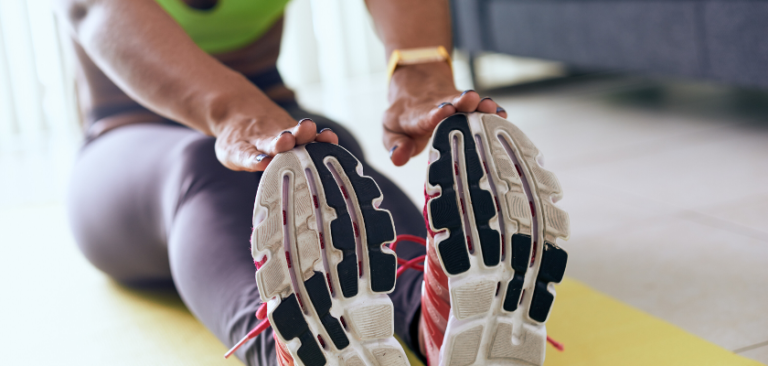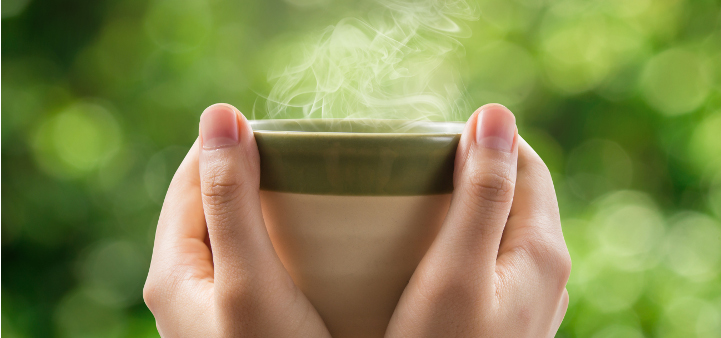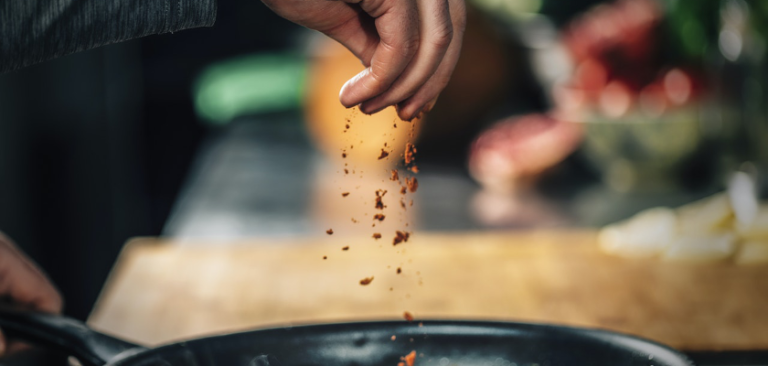Recipe for Soothing Anxiety
Stress is a natural part of everyday life, but when it’s out of proportion, anxiety can be triggered. To stay healthy at work, it’s important to have a toolbox of coping techniques at your fingertips when anxiety arises.
10 ingredients for calm
In the moment, anxiety can feel overwhelming. The very nature of anxious feelings and the state of our nervous system can make it difficult to take the pause we need to calm our mind and body. Our brain floods the nervous system with hormones and chemicals with the sole purpose of heightening our senses so we’re better able to respond to a threat. Here are some strategies to try out. In any given moment, certain techniques may be more effective than others because what we need might change with different circumstances. There’s no one-size-fits-all person to person or moment to moment. Test them out for yourself, so you have a variety of tools at hand when you need a little calm!
Breathe.
When we are mentally stressed, tension often builds up between the shoulder blades, tightening the rib cage, resulting in shorter, shallow breaths that in turn, build more tension. Take a few slow, deep breaths to soothe the fight-flight response: try sitting up tall so the breath gets all the way deep into your belly with your shoulders relaxed, then count slowly to four as you breath in, hold for a count of four, exhale for four and hold for four before taking the next breath in (the box breath).
Get moving.
Exercise helps the brain cope with stress and reduces sensitivity to your body’s reaction to anxiety. It decreases stress hormones like cortisol and stimulates endorphins, the “feel good” hormone. Go for a walk, play sports like tennis or frisbee golf, go dancing, hop on the treadmill, grab some resistance bands or try out a mind-body integration exercise like tai chi or yoga. Even just 5-10 minutes can make a huge difference.
Get organized.
Clutter makes it difficult to relax and signals our brain that our work is never done. We’re never sure what it’s going to take to get to the bottom of the pile. It bombards our minds with excessive stimuli overloading the senses and distracting from what’s important, inhibiting creativity and productivity. Regain a sense of control and free your mind up by organizing your car, phone, a closet, papers, calendar, goals, time or the kitchen junk drawer. Start with one small thing.
Drink water.
The first part of the body to suffer from dehydration is your brain. It causes stress on the body and has been linked to mental fatigue, emotional strain, anxiety, depression and panic attacks. Adequate water intake can improve mood, mental clarity and lead to feelings of contentment, calm and even more happiness. Sip a glass of plain, room temperature water for a gentle calming effect on mind and body.
Talk about your feelings with someone you trust.
Talking out loud can help us process through emotions so we can let them go instead of holding them inside where they can build and fester. Ask a trusted friend if they will just listen while you vent for a few minutes. A licensed therapist can help you find ways to manage stress better and process through feelings to get perspective. You can even “talk it out” with yourself – just putting your feelings into words can help reduce the fight or flight stress response.
Take a power nap.
Short naps of 10-30 minutes can calm the nerves, refresh focus and boost energy. Afternoon naps have been shown to have the best effects on mental tension and mood, reducing anxiety without making you groggy or have trouble falling asleep later. Longer naps aren’t as beneficial, and if you find yourself napping longer than an hour, it could be a sign you’re not getting enough good sleep.
Practice mindfulness.
Mindfulness focuses our attention on the present moment, and helps us be more open to and aware of our emotions. It takes our mind off worries or rumination about the future. Try out a short guided meditation, like a body scan to heighten body awareness and release physical tension. It can also be as simple as focusing on the breath, or tuning into the immediate environment with all five senses: notice an object for each color of the rainbow, how your chair feels under your arms and legs, or the feet on the ground, what sounds and smells can you pick up on?
Journal.
Write down your thoughts and feelings on paper, rather than keeping them inside. This can help your mind process through emotions or challenges. You can also journal what makes you feel calmer and more peaceful—even if it’s just temporarily. Make a top ten list of your favorite things, write down three things you’re grateful for, or spend 5 minutes writing everything you remember about a happy memory.
Eat healthy foods.
Avoid stimulants like sugar and caffeine which increase stress. Although alcohol initially may have a calming effect, it worsens anxiety by disrupting serotonin and other neurotransmitters and when the relaxing flood of dopamine and GABA wear off, the withdrawal can make you feel even more anxious. Stick to whole foods rich in fiber, protein and healthy fats. Have a handful of almonds or veggies with that glass of water.
See your doctor if symptoms persist.
A little anxiety in life from time to time is normal, especially during times of change. Sometimes it can even be motivating like interviewing for a job, going on a date, or trying a new hobby. When it feels like things are too much out of our control, life is moving too fast to catch up, you’re having trouble sleeping or getting through the day, it may be time to bring it up with your primary care physician, as many medical conditions are linked to anxiety, and they could also refer you to a licensed mental health professional. Therapy is a wonderful self-care resource for mental wellbeing!





